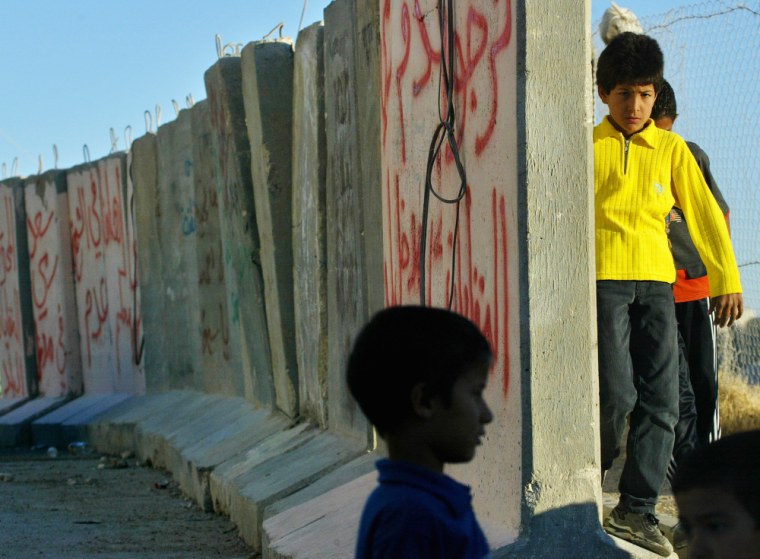Israel said on Wednesday it would reroute part of a controversial West Bank barrier after the country's highest court ordered the government to make changes that would minimize hardship to Palestinians.
"The replanning of these sections will be based on the principles set by the High Court, namely the proper balance between security and humanitarian considerations," the Defense Ministry said in a statement.
The court said the changes must be made, even at the risk of reducing Israeli security. The decision dealt a setback to Israel's defense establishment.
Israel says the barrier is needed to block Palestinian suicide bombers from the West Bank. Palestinians have said the complex of fences, trenches and razor wire is a land grab.
The construction dips deep into the West Bank in some areas, and has disrupted the lives of thousands of Palestinians. About a quarter of the 425-mile barrier has been completed.
"The route disrupts the delicate balance between the obligation of the military commander to preserve security and his obligation to provide for the needs of the local inhabitants," the ruling said.
"The route ... injures the local inhabitants in a severe and acute way while violating their rights under humanitarian and international law," it said.
Setting a precedent
Wednesday's case focused on a 25-mile stretch of the barrier northwest of Jerusalem. But the case was seen as setting a precedent for other challenges to the barrier.
"To have the chief justice of the Supreme Court say you can't put the Palestinians in prison ... in the name of the security of Israel, that is really important. That is the least I can say," said Mohammed Dahla, a lawyer for the petitioners.
Dahla said the section near Jerusalem would disrupt the lives of 45,000 people living in 10 villages, cutting them off from their farmland, schools and jobs.
He said the court had ordered changes in more than 20 miles of the stretch. Israel Radio said two miles of completed construction would also have to be dismantled.
The ruling said the route had "severely violated" the local population's freedom of movement and "severely impaired" their livelihoods.
"These injuries are not proportionate. They can be substantially decreased by an alternate route," it said.
Construction delay
Dany Tirza, the army's chief planner of the route of the barrier, said the decision would delay construction "certainly by many months."
He said everything would return to their original conditions and that Palestinians will receive compensation for their losses.
Brig. Gen. Eran Ofir, the head of logistics in the army, hinted that the ruling could affect other areas of construction.
"In regards to other areas, we will have to consider after checking the ruling and then act accordingly," Ofir said.
The court froze construction of the section near Jerusalem in late February, shortly after construction began.
The Palestinians have also asked the world court in the Hague, Netherlands, to rule on the legality of the barrier. The world court is expected to issue its advisory ruling next week.
